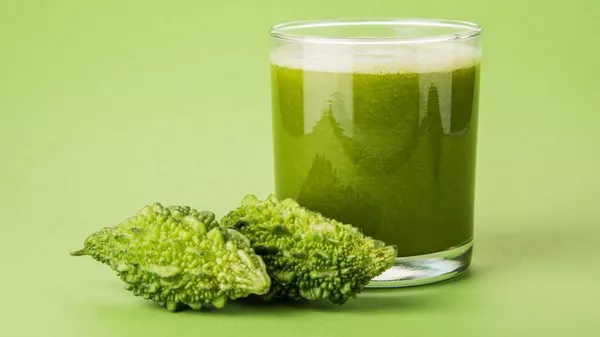Smoothies are a delicious and nutritious way to incorporate more fruits and vegetables into your diet. While fruit smoothies are widely popular, adding vegetables to your smoothies can enhance their nutritional value without compromising taste. Vegetables bring a host of vitamins, minerals, fiber, and antioxidants to your diet. In this article, we’ll explore a variety of vegetables that blend well in smoothies, discuss their health benefits, and provide tips on how to incorporate them into your daily routine.
Why Add Vegetables to Your Smoothies?
Before diving into the specific vegetables that are great for smoothies, it’s important to understand why adding vegetables to your smoothies is beneficial:
- Nutrient Density: Vegetables are packed with essential vitamins and minerals, including vitamins A, C, K, folate, potassium, and magnesium.
- Fiber Content: The fiber in vegetables aids digestion, helps maintain healthy blood sugar levels, and keeps you feeling full longer.
- Low-Calorie: Many vegetables are low in calories, making them ideal for weight management.
- Antioxidants: Vegetables contain antioxidants that protect your cells from damage and reduce inflammation.
- Natural Detoxification: Certain vegetables support liver function and help detoxify your body.
- Variety in Diet: Including vegetables in smoothies can add variety to your diet and ensure you consume a broader spectrum of nutrients.
Best Vegetables for Smoothies
1. Spinach
Health Benefits:
Spinach is a leafy green vegetable that is a nutritional powerhouse. It is high in vitamins A, C, and K, as well as iron, calcium, and folate. Spinach is also rich in antioxidants like lutein and zeaxanthin, which are beneficial for eye health.
Flavor Profile:
Spinach has a mild flavor that blends seamlessly with fruits, making it an excellent choice for smoothies.
Smoothie Tip:
Add a handful of fresh or frozen spinach to any fruit smoothie. It pairs especially well with tropical fruits like mango and pineapple.
2. Kale
Health Benefits:
Kale is another leafy green that is exceptionally high in vitamins A, C, and K. It also contains significant amounts of calcium, potassium, and fiber. Kale is known for its high antioxidant content, including quercetin and kaempferol, which have anti-inflammatory properties.
Flavor Profile:
Kale has a slightly bitter taste, which can be balanced out by sweet fruits.
Smoothie Tip:
Use baby kale or remove the tough stems from mature kale leaves to reduce bitterness. Blend kale with sweet fruits like banana or berries to create a delicious and nutritious smoothie.
3. Carrots
Health Benefits:
Carrots are rich in beta-carotene, which the body converts into vitamin A. They are also a good source of fiber, vitamin K1, potassium, and antioxidants. Carrots promote good vision, support immune function, and improve skin health.
Flavor Profile:
Carrots have a natural sweetness that pairs well with many fruits.
Smoothie Tip:
Blend raw or cooked carrots with oranges, ginger, and a splash of lemon juice for a refreshing and vibrant smoothie.
4. Beets
Health Benefits:
Beets are packed with essential nutrients, including fiber, folate, manganese, potassium, iron, and vitamin C. They are known for their ability to improve blood flow, lower blood pressure, and enhance exercise performance.
Flavor Profile:
Beets have an earthy, slightly sweet taste that can be balanced with citrus fruits.
Smoothie Tip:
Use raw or roasted beets in your smoothies. Combine beets with berries, oranges, and a touch of ginger for a nutrient-rich smoothie with a beautiful color.
5. Cucumber
Health Benefits:
Cucumbers are low in calories but high in important vitamins and minerals, including vitamins K and C, magnesium, potassium, and manganese. They are also hydrating due to their high water content and can help with digestion.
Flavor Profile:
Cucumbers have a mild, refreshing taste that complements a variety of other flavors.
Smoothie Tip:
Peel and chop cucumbers before blending. Pair cucumbers with mint, lime, and a hint of honey for a cooling and hydrating smoothie.
6. Celery
Health Benefits:
Celery is a low-calorie vegetable that is high in vitamins A, C, and K, as well as folate and potassium. It has anti-inflammatory properties and is known for its high water content, which aids in hydration.
Flavor Profile:
Celery has a crisp, slightly salty taste that can be balanced with sweet fruits.
Smoothie Tip:
Combine celery with green apple, spinach, and a squeeze of lemon for a refreshing green smoothie.
SEE ALSO: How Do You Make a Smoothie with Milk?
7. Zucchini
Health Benefits:
Zucchini is low in calories and high in essential nutrients like vitamins A, C, and K, as well as manganese and fiber. It supports digestion and has a mild diuretic effect.
Flavor Profile:
Zucchini has a mild, slightly sweet flavor that blends well with other ingredients.
Smoothie Tip:
Add raw or lightly steamed zucchini to your smoothies. It pairs well with bananas, spinach, and almond milk for a creamy texture.
8. Sweet Potato
Health Benefits:
Sweet potatoes are rich in beta-carotene, vitamin C, potassium, and fiber. They are known for their ability to regulate blood sugar levels, support eye health, and boost immunity.
Flavor Profile:
Sweet potatoes have a naturally sweet and earthy flavor.
Smoothie Tip:
Roast or steam sweet potatoes before blending. Combine them with banana, cinnamon, and a touch of nutmeg for a delicious and hearty smoothie.
9. Avocado
Health Benefits:
Avocados are unique among vegetables due to their high healthy fat content. They are rich in monounsaturated fats, vitamins C, E, K, and B-6, as well as folate, magnesium, and potassium. Avocados support heart health, improve digestion, and provide a creamy texture to smoothies.
Flavor Profile:
Avocados have a mild, buttery flavor that enhances the creaminess of smoothies.
Smoothie Tip:
Blend half an avocado with leafy greens, pineapple, and coconut water for a tropical and creamy smoothie.
10. Cauliflower
Health Benefits:
Cauliflower is high in vitamins C and K, folate, and fiber. It has anti-inflammatory properties and supports detoxification processes in the body.
Flavor Profile:
Cauliflower has a mild, slightly nutty flavor that can be masked by stronger fruits.
Smoothie Tip:
Use frozen cauliflower florets to add creaminess to your smoothies without affecting the flavor. Pair cauliflower with berries, almond milk, and a dash of vanilla extract for a nutritious smoothie.
Tips for Making Vegetable Smoothies
- Start Small: If you’re new to adding vegetables to your smoothies, start with a small amount and gradually increase the quantity as you get used to the taste.
- Blend Well: Ensure your vegetables are well-blended to avoid a gritty texture. High-powered blenders work best for creating smooth, creamy smoothies.
- Pair with Sweet Fruits: Combining vegetables with sweet fruits like bananas, mangoes, and berries can help mask the earthy flavors of some vegetables.
- Add a Liquid Base: Use a liquid base such as water, coconut water, almond milk, or any other milk alternative to help blend the ingredients smoothly.
- Experiment with Spices and Herbs: Add fresh herbs like mint, basil, or cilantro, and spices like ginger, turmeric, or cinnamon to enhance the flavor and nutritional profile of your smoothies.
- Balance Flavors: Adjust the balance of sweet, tangy, and savory flavors to suit your taste. A splash of lemon or lime juice can brighten up the flavors.
Conclusion
Incorporating vegetables into your smoothies is a simple and effective way to boost your nutrient intake. Vegetables like spinach, kale, carrots, beets, cucumber, celery, zucchini, sweet potato, avocado, and cauliflower offer a wide range of health benefits and blend well with various fruits. By experimenting with different combinations and following the tips provided, you can create delicious and nutritious smoothies that support your overall health and well-being. So, grab your blender, get creative, and start enjoying the benefits of vegetable-packed smoothies today!
Related Topics:
























